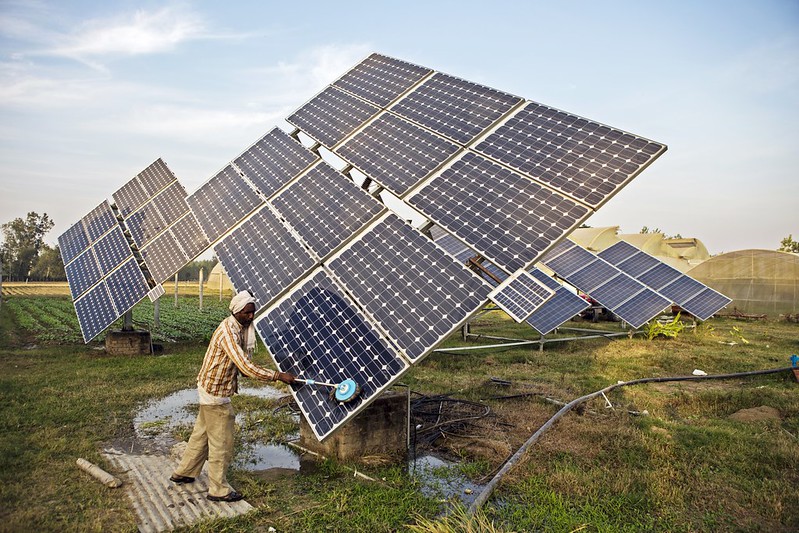While making the sun shine at night may just be the craziest idea we have come across yet, Reflect Orbital, headed by CEO Ben Novack, is dead serious about this venture.
When you read the title of a post like this, the first instinct is to think it has to be some kind of joke, come on, selling sunlight at night may just be the craziest idea we have come across yet. That being said, however, Reflect Orbital, headed by CEO Ben Novack, is dead serious about selling California Sunshine, after dark, and is even developing an app through which users can mark their location on a map and receive an extra 30 minutes of sunlight.
If you’re thinking about giant reflective mirrors in the sky, you would be correct, that’s literally the plan, to send giant mirrors up on satellites and have them reflect sunlight back to earth.
Mirror, mirror, in the sky
While it may sound simple enough, the plan involves a constellation of up to 57 satellites, with each of these satellites to be equipped with a 33 square foot ultra reflective mylar mirror. If, like me, you’re wondering where you heard that word before, mylar is the stuff used to make space blankets and greenhouse walls, basically polyester film that reflects light better than glass. These mirrors will then be set in orbit on their respective satellites at an altitude of about 370 miles. According to CEO Ben Novack, these mirrors will be able to redirect sunlight to specific spots on Earth, effectively lengthening the amount of daylight received by an extra 30 minutes.
If you still think this idea is a lot of hot air, Novack and his team have already put their idea to the test (a video of which has been uploaded to X) with a slightly smaller mylar mirror (8 square feet), mounted on a hot air balloon at an altitude of about 800 feet. While this may be nowhere near the planned 33 square foot mirrors at an altitude of 370 miles, the experiment was successful at targeting solar panels on the ground and generating an extra 500 watts of energy per square meter of solar panels. This is probably the reason CEO Ben Novack, co-founder and CTO Tristan Semmelhack and the rest of the team at Reflect Orbital, firmly believe their idea is going to be profitable.
Why oh why
Now the obvious question here is why would anyone come up with an idea like this and the answer is to help solar farms bridge the energy gap. According to CEO Novack, the problem with solar power is that there’s a lot of it during the day but not during peak consumption. In other words, while the sun is an infinite source of energy, the problem with it is that it doesn’t work at night. To quote him “It’s called nighttime. If you solve that fundamental problem, you fix solar everywhere.” Additionally, Reflect Orbital’s target customer base is solar farms where on-demand sunlight is a crucial commodity, especially at night when most solar panels are inactive.

This technology could also be effective at powering solar farms in desert regions that don’t receive direct sunlight. As we mentioned earlier, the plan is to make this service available via an app where customers can choose their location on a map and order some sunshine to be directed at them. To quote CEO Ben Novack, “We want to make it as easy as possible, like log into a website, tell us your GPS coordinates and we will get you some sunlight after dark.” While there are obviously people who think the idea is preposterous, what’s surprising is that this isn’t the first time someone is trying this. Russia’s project Znamya in 1993 involved a 20 meter diameter concave reflector launched from a space station that created an 8 km wide brightspot on earth but failed and was abandoned.
The future could be bright (at night)
Now if you own a solar farm and are considering ordering some sunshine, apparently bookings close this month, availability is limited, and the initial offering is for 4 minutes of extra sunlight. However, this hasn’t stopped the reported 30,000 applicants that have already booked their extra 4 minutes of sunlight at night. As of now, Reflect Orbital hasn’t launched any satellites yet and their first mirror is scheduled to go up in 2025. If you consider the complications involved with everything from weather to correct orbit, amount of light reflected, and the possible side effects to wildlife, astronomers, and people just trying to sleep, they definitely have their work cut out for them.
In case you missed:
- Researchers develop solar cells to charge phones through their screens
- Could Dimming the Sun Be the Solution to Global Warming?
- Scientists have stored the human genome on a Kryptonian crystal
- Age reversal technologies in 2024, longevity escape velocity by 2029?
- How AI Is Helping Restore the World’s Coral Reefs
- A Glowing Plant Could Be Your New Night Lamp for $29
- CDs are making a comeback, on a petabyte-scale capacity!
- From Fridge to Fusion Reactor, How Mayonnaise is Facilitating Nuclear Fusion
- South Korean firm develops drone that flies on hydrogen fuel
- Netflix replaces its game developers with AI









